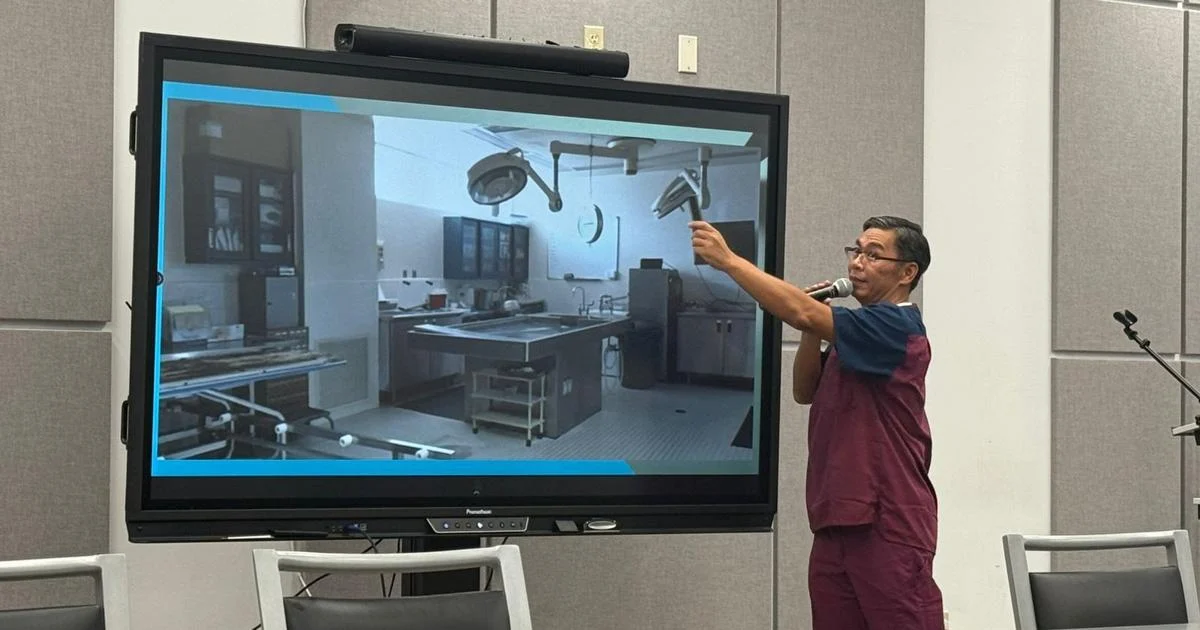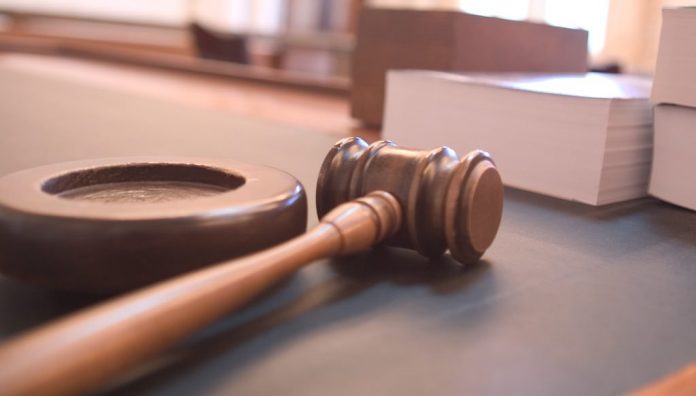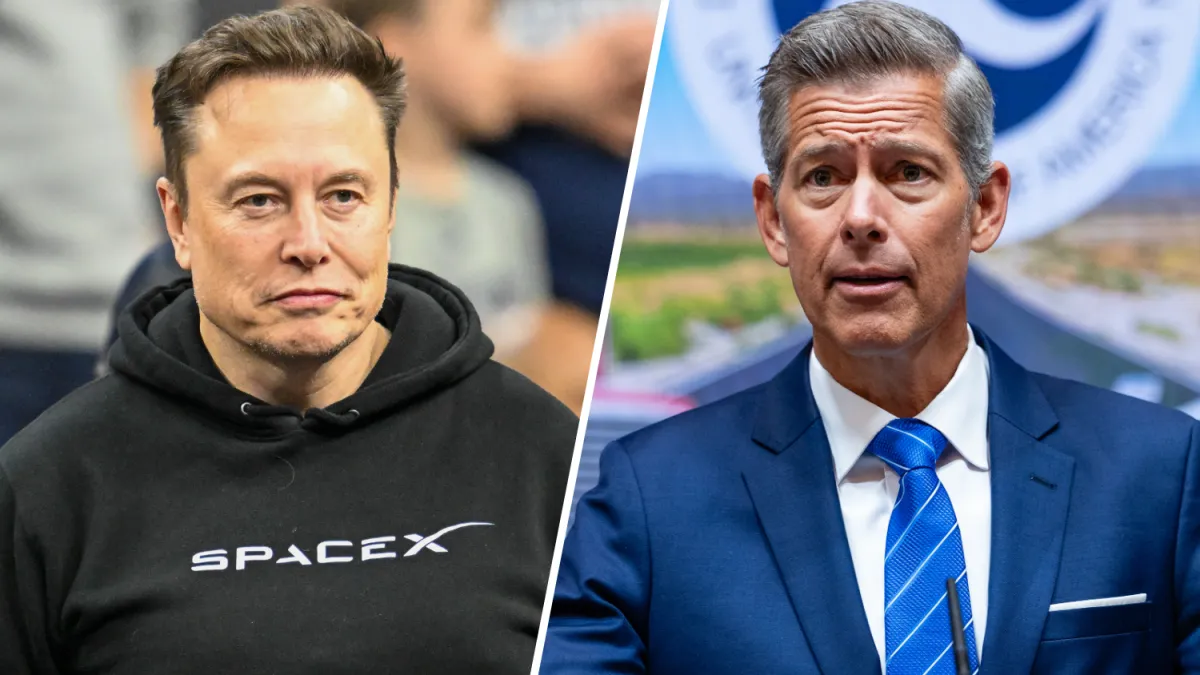Copyright guampdn

Guam’s lone medical examiner, Dr. Kenny Su, delivered a sobering message, warning that without critical investment in staff, resources, and facilities, the island is dangerously unprepared to respond to growing mass casualty events, including wildfires, shootings, and military-related deaths. “We cannot even help ourselves,” Su said. “So please don’t feel sad if I say no to you guys, my friends, because I probably even have a hard time doing our own cases now so far, and the military dumps cases on me too.” Su was one of the presenters at the final day of the 3rd Regional Forensic Science Symposium at the Guam Community College. Guam’s only crime lab serves as a crucial forensic center for the region, including neighboring Micronesian islands. However, despite that role, Dr. Su said the facility still lacks local DNA testing, a critical gap that limits its ability to process evidence and solve cases. He explained that forensic infrastructure is also severely under-resourced, even as its regional responsibilities continue to grow. During his address, Su asked the audience how many staff members the medical examiner’s office should have to support the Pacific region. Estimates ranged from 10 to 15, depending on the area. Then came Su’s stark reality check. “We have only two, including me. That’s what happens,” he said. Su described how the staffing shortage has forced his office to operate far below standard, with critical roles left unfilled and basic needs unmet. “We should have an investigator. We don’t have that now. We should have our morgue assistants, but they left. Why? Because the salary is too low. The salary is lower than McDonald’s,” he said. “We should have our transportation but no budget. So who does that? The fire department does that for us.” Su praised his assistant, Johanna Bamba, for doing the job of multiple people daily. “When we need an investigator, she becomes an investigator. When I need to do an autopsy, she becomes a morgue assistant. Can we give her an applause?” he said, gesturing to the crowd. The room applauded. He also pointed to Guam’s outdated facility, 50 years old, with broken lighting and equipment no longer manufactured. Meanwhile, the number of homicide cases in Guam has doubled, from one every two months to one per month. Su said 2024 has already shown rising suicide cases, especially by hanging, while traffic deaths and drug overdoses are slightly down. As Guam’s population climbs above 200,000, the need for a fully staffed, modern facility has become urgent. Su says regional cooperation could help, but not without proper investment. “If you want a medical exam office to help the neighboring islands, then how many staff do you think our office should have?” he remarked. Military-related deaths also pose a significant burden, as Su revealed that despite being federally mandated to handle natural deaths on base, Guam receives no federal funding for those investigations. “I asked them, ‘Oh, so if you want me to do it, then where is the budget?’ And they won’t give us one penny,” he said candidly. Despite coordination attempts with the Office of the Attorney General and Guam Police Department to push back, jurisdiction remains unresolved, with military deaths continuing to arrive at his office. Su urged the public to treat the medical examiner’s office as critical infrastructure, not optional. “Some blocks, you can take off but if you take off some blocks, it might collapse,” he said, showing an image of a Jenga tower. “I believe the medical exam office is one of the important blocks you should not ignore or take off. If you do that, the case will collapse. So please help to support our office.” Dr. Su shared real-life disasters, including those from his two decades of experience across California, Texas, and now Guam, each pointing to the growing threat of mass casualties and the deep strain placed on medical examiner offices. He started off his presentation with the 1997 Korean Air Flight 801 crash near the Guam Air Force base that had a mass casualty event in which 226 people died and 28 survived. “So are we free of mass casualties? No, not in Guam,” he said. Su’s career spans major national tragedies, drawing on firsthand experience from events like California’s deadly 2018 Camp Fire that killed 85 people and the 2023 mass shooting at a Texas mall that left eight dead, to warn of the devastating realities of mass casualty events. “Some are choking inside and some pull the trigger of the gun to their head because they don’t want to suffer. So when a wildfire happens, it’s not just an accident. It can be suicide too,” he said, recalling the horrors in Paradise, California. Firearm suppressors His remarks took on added weight as he connected them to Guam’s recent legalization of firearm suppressors. In July, senators voted 10-5 to override Gov. Lou Leon Guerrero’s veto of Sen. Will Parkinson’s Bill 27-38, which legalizes gun suppressors, also known as silencers, on the island. The governor vetoed the bill in June, arguing suppressors could be used to muffle gunshots in life-threatening situations, making it harder for law enforcement or bystanders to detect and respond to gunfire. Parkinson defended the bill as a matter of hearing protection for lawful gun owners and pushed back on the term “silencers,” saying it inaccurately portrays the technology. Dr. Su raised the issue again during his presentation of the 2023 Allen, Texas mass shooting, where victims included a 21-year-old security guard and members of a Korean family celebrating a child’s birthday. “The brave officer shut down the killer at the scene. But... can anyone answer me, how did he know there was a shooting? Because of the sound, right?” Su said. “However, last month in Guam, we passed the gun suppressor. So imagine if this happened in the Micronesia Mall, how would the officer hear it?” In 2023, the Lahaina wildfire in Hawaii killed 102 people, making it the deadliest wildfire in U.S. history. Su presented photos showing blocked roadways filled with burned vehicles, illustrating how entire cities can be devastated and mass casualties created when escape routes are cut off. Most recently, 16 people were killed in a manufacturing facility explosion in Tennessee just last Friday. Dr. Su warned that Guam is not immune to similar disasters, especially given its proximity to U.S. military explosives. “Do you know that the civilian area is so close to that explosive place? So what do you think is Guam safer or more at risk,” he asked. “When people say, Guam is the tip of the spear. The next question is, then, where is our shield? Why is it important? Because if there is no shield, then it’s a human wave attack,” he said. “There’s no protection.” Lt. Gail Wilczynski from the Jefferson County Sheriff’s Office in Dandridge, Tennessee, one of the symposium presenters, proposed a bold strategy to secure funding for Guam’s overburdened resources. She urged pushing advocacy all the way to the highest levels of the military, encouraging them to embrace the vision of Guam as the “tip of the spear” in the region and to provide the necessary support and funding. “You bring up everything you talked about, the tip of the spear, but no shield. I would inspire the military till they fund it, because you're taking care of them. So it's legitimate,” she said. “Guam in this region is the point of the spear, and that would be my strategy.” She further urged persistence in securing support. “Do not take no for an answer. It just means you're talking to the wrong person, or you're the wrong person to be doing the talking. Find that inspiring person that will go and not take no till you get what you need.” Josephine Wentzel, retired Guam Police Department detective and founder of Angels of Justice, echoed the call for military funding. Wilczynski added a commitment to support funding efforts directly. “Theoretically, we should get the funding so far… I'll get you funding. I'll attack the military about this,” she said. “Let me know, I'll make calls to the Pentagon and complain to the White House, saying you're setting all the troops here and you're overwhelming our resources. You need to cough up some money right now, especially the crime lab, because the military is bringing crime here. We need to be covered for our people.”



